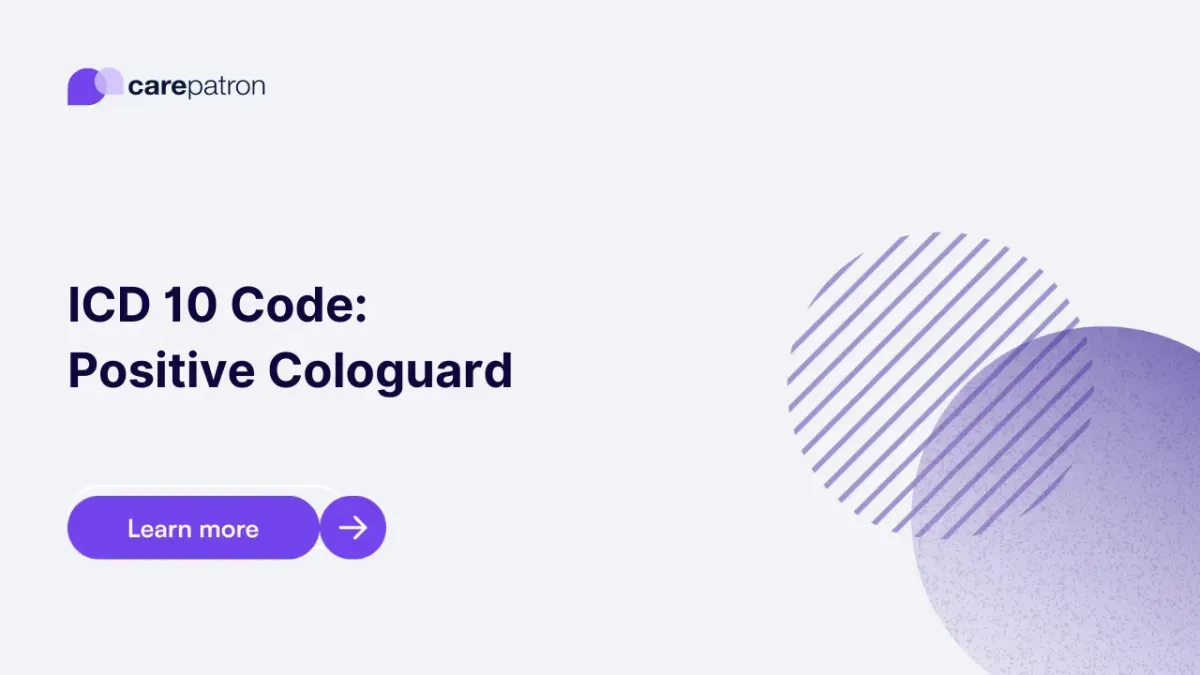
Positive Cologuard ICD-10-CM Codes
Read this short guide to learn about positive cologuard ICD codes you can use!
Use Code
Commonly asked questions
The risk that cologuard screening kits carry is the possibility of a false positive or false negative result. It’s best to undergo a comprehensive screening to be sure.
People who use cologuard screening kits to self-screen themselves must be able to send their stool samples within 24 hours. The samples must arrive within 72 hours of the collection of the samples.
The best time to take it is anytime, anywhere, as long as the person taking it can send the sample within 24 hours after pooping. They can’t take the test if they have diarrhea, if they are menstruating, or if they have rectal bleeding due to hemorrhoids.
EHR and practice management software
Get started for free
*No credit card required
Free
$0/usd
Unlimited clients
Telehealth
1GB of storage
Client portal text
Automated billing and online payments
